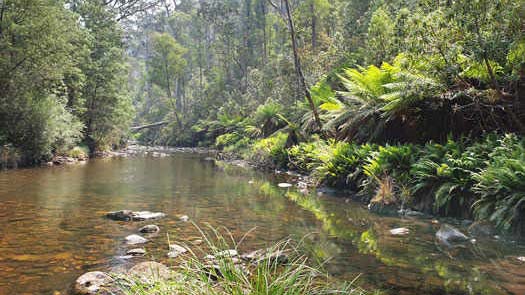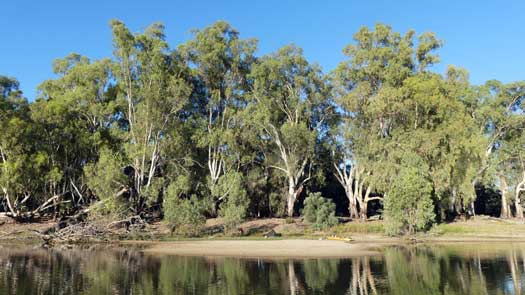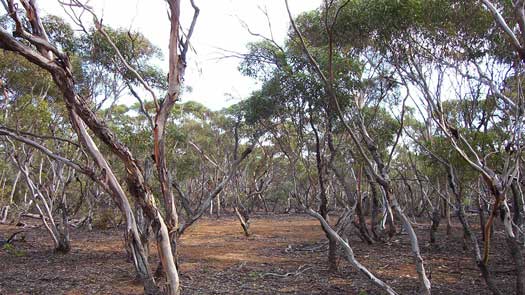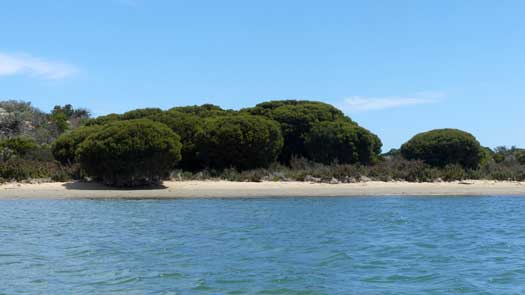Reptiles
Species found in and around the Murray River
Large-scale geophysical landscapes found along the Murray River
There are always flowers for those who want to see them.
The Murray traverses a wide array of biogeographic regions as it winds its way down from Mount Kosciuszko to the Coorong, Each of these regions have a wide array of plant and animal communities present:
Some of the most unique, rarest and varied flora found along the entire trip. The alps cover areas from the tablelands (<1,100 m), montane (1,100 to 1,400 m), subalpine (1,400 to 1,800 m) and alpine (1,800 m plus) zones.
The tablelands contain dry and open woodlands that get wetter as the altitude increases, terminating at the treeline that marks the start of the alpine zone. Heaths, fens, bogs and grasslands are common throughout the montane and alpine areas, with herbfields and feldmarks limited to the alpine zone.

Mixed wet and dry forests with open woodlands.

Vegetation is mainly driven by the nature of the river channels and floodplains across the vast Riverina plains. Along the main channels River Red Gum communities dominate, with various Box woodlands on drier zones. Shrublands and grasslands are more common away from the river.

Murray Darling Depression bioregion is the plains that the Murray and Darling rivers flow across. The narrow strip of river red gum (Eucalyptus camaldulensis) and black box (Eucalyptus largiflorens) woodlands on riverbanks hide the predominant Mallee woodlands that define this bioregion. However there are many sections along the river where the mallee can be observed. Much of the original cover has been lost due to farming.

The Coorong is dominated by large dunes and high-energy sandy beaches, including one of the longest sandy beaches of Australia.
©2026 Alan Davison // Credit // Disclaimer